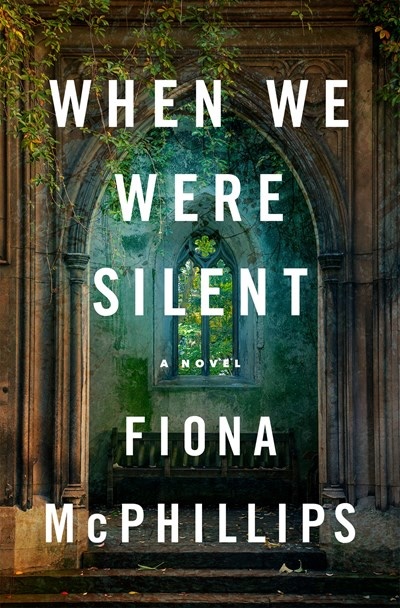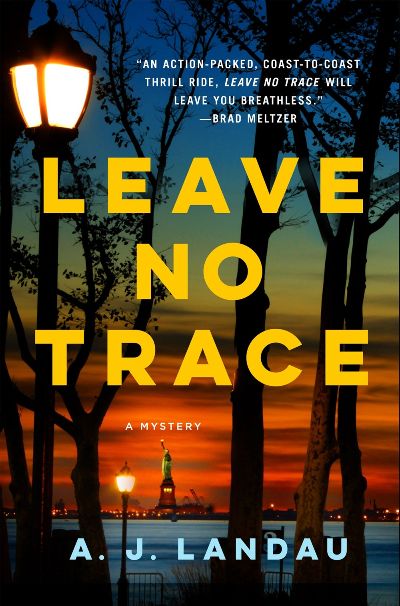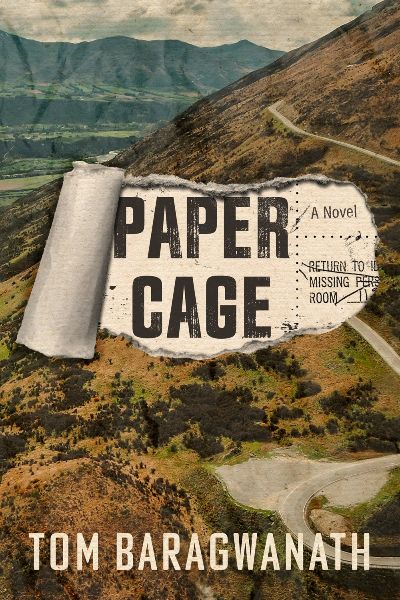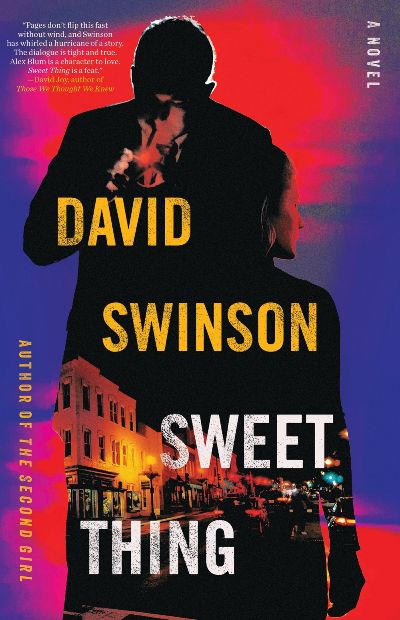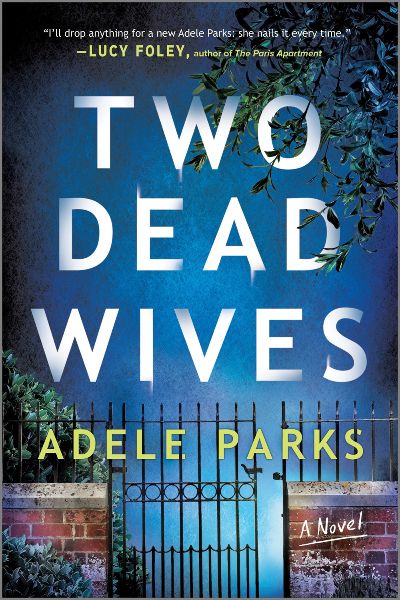“Where there’s pain, there’s blame,” which is why Syd Walker lives far from her Oklahoma roots and hasn’t seen her family in years. As a teen, Syd; her sister, Emma Lou; and her best friend, Luna, were attacked by a pair of masked Tsigilis, the Cherokee word for devils. Syd, who is Cherokee, shot one of them dead, but his gang killed Luna and her parents. She can’t forgive herself for not saving Luna, and the small town of Picher can’t decide, even all these years later, what she should have done that night. That past is now coming back with a vengeance as the epidemic of missing young Native women now seems to have swallowed Emma Lou, and the body of another young woman has been found, with Syd’s old work ID card in her mouth. Syd’s return home immerses the reader in the difficulty of returning to a place and people you’ve outgrown, the bitter choices we must sometimes make—Syd is now an archaeologist for the same Bureau of Indian Affairs that has cost her people so much—and the strength that love and loyalty bring. Lillie (an enrolled citizen of the Cherokee Nation of Oklahoma) adds to the story details of Native history and current day life, with sardonic wit both tempering and highlighting the pain that pierces both times. A dark and propulsive thriller for fans of Kelly J. Ford.
Henrietta Thornton
French made her name in crime fiction by exploring the underbelly of Irish life in her Dublin Murder Squad series, which blew the lid off any leprechauns in the mist-type views of Ireland. Here the little people are dragged back out, but for good reason: the locals in the west of Ireland mountain village of Ardnakelty lay the superstitions and rural naivete on thick when an Englishman comes to town and promises to make them rich. Meanwhile, their real game is, as the book says in a different context, “offensive and defensive weapons as well as broad-spectrum precautionary measures” (I’m from an Irish mountain area myself and French has us pinned to a board like a butterfly). Playing up the stereotypes is working great, with the Englishman, Mr. Rushborough, lapping up stories of his sainted ancestors while the locals plan to scam him. Come to find out, it’s not a one-sided game. There are three great characters here: Johnny Reddy, a local huckster who left his family for London and is now back expecting a hero’s welcome, with Rushborough in tow; Trey, his daughter, who has started to make an honest name for herself as a talented carpenter, and who is seething with rage against her father and the world; and Cal Hooper, a former Chicago cop who’s lived in Ardnakelty for a few years and is having none of Johnny’s bluster. French fans will love reacquainting themselves with these characters, whom they met in The Searcher (2020); newcomers to the author or this series will be glad they tried this emotional saga.
When Louise (Lou) Manson, a professor at Trinity College, Dublin, goes after a predator from her former school, there are serious repercussions…for her. Of course, says her boss, she must understand that she can’t work while this is going on. And it’s unthinkable, says her daughter’s swim coach, that the teen will be allowed at a swimming competition that meets at the school in question. Moving back in time, swimming plays a prominent role in this debut that mirrors the histories of sexual abuse of some athletes that have come out in recent years, this time focusing on the athletes themselves and their desire for justice. Lou, a great student but whose family is poor, was motivated to get a scholarship to Highfield Manor, the school where her friend killed herself as a result of abuse. As a student, Lou believes, she can catch the culprit red-handed and bring him to justice. But it’s a foolish plan, one that enmeshes her immediately and for years in mental and physical torture and that brings all involved to a courtroom nailbiter. That’s when we think it’s over, but McPhillips has twists in store in this absorbing psychological drama that examines the relative strengths of loyalty, revenge, and truth. A spot-on depiction of the maelstrom that is teenage friendship is a plus. Try this one if you like a story of a woman who’s had enough and isn’t afraid to show it anymore.
Katharine Wright, a teacher when we meet her in 1903, has her work cut out at home as well as at the high school where she teaches Latin and Greek (but not advanced classes, because “we can’t have a woman teaching upperclassmen”). At home, her father has forbidden her to marry, as her mother has died and he and his sons need a woman to take care of them. Two of those sons are Wilbur and Orville, who at the outset of this informative, fun, and absorbing mystery are in North Carolina attempting to be the first to achieve powered, heavier-than-air flight. After the triumphant telegram, the mysteries start: accompanying his sister to a society dinner, Orville has his jacket stolen, and in its pocket are the men’s notes and drawings of their not-yet-patented work. At the same event, a guest is found stabbed in the heart (you can guess which crime concerns Orville more). The siblings must get to work at finding the papers before Wilbur knows they’re gone and finding the killer before an innocent teen is tried for the crime. The few details about aviation here are interesting and easy for lay readers to navigate; the brothers’ agony over their ideas being stolen is palpable and more germane to the plot. Yet more central, happily, is their sister, the only Wright sibling to attend college and “a teacher, feminist, scholar, and extrovert,” per the author’s note. While waiting for this, try another aviator-related crime novel, Mariah Fredericks’s The Lindbergh Nanny.
Authors Jeff Ayers and Jon Land, writing as A.J. Landau, start a new, contemporary series with a literal bang: an explosion that topples the Statue of Liberty. As Liberty Island is a National Park, a major crime there is investigated by the National Park Service’s Investigative Services Branch, and Special Agent Michael Walker soon finds himself leaving the tranquility of Shenandoah National Park for the chaos of a bombed island (as a foot amputee, Michael is a welcome disabled main character). Also sent to investigate is Gina Delgado of the FBI’s New York field office. Soon the political dance is on as the agencies clash in their fight for dominance and information. Further attacks aren’t far behind as a mysterious figure, who readers know only as Jeremiah, targets the federal government and bomb disposal skills are in high demand. Both thriller and history fans will watch the pages fly as the authors keep the hair-raising moments coming (a rattlesnake-vs.-bad-guy moment sticks out) and provide plenty of national park-related facts (did you know that construction of St. Louis’s Gateway Arch was estimated to require 5,000 workers but fewer than 100 were hired?). A breakneck-paced story with characters whom readers will be excited to see more of.
Leave No Trace author Jeff Ayers is a Contributing Editor to firstCLUE
Rural New Zealand police records clerk Lorraine (Lo) Henry isn’t supposed to get involved in cases. But when children in her town start to disappear, and it’s clear that she knows more than the officers about local families and goings on, and cares more than her colleagues do, the big-city cops who’ve been deployed ask her to step in. It’s not a popular move, but Lo is determined, especially after her nephew becomes one of the missing. Complicating the investigation is town politics that pits poorer Maori residents against white or “Pakeha” ones. Family histories, the drug trade, and gang activity also muddy the case and keep Lo busy (“everything feels pushed together like too much washing in the machine”) as she doggedly tries to find the children. Things move fast but reach calamitous speed in the last quarter of the book, a gripping showdown leading to a last line that won’t leave a dry eye. Baragwanath’s language throughout just won’t stop with a verisimilitude that deeply immerses readers in small-town life and this particular town’s warmth, sadness, and terror. Paper Cage won the Michael Gifkins Prize for best unpublished novel by a New Zealand author and has been shortlisted for both the Ned Kelly Award for Best International Crime Fiction and the New Zealand Ngaio Marsh Award for Best First Novel. It’s no wonder.
Washington, DC homicide detective Alex Blum is an in-between sort of cop. He’s not jaded, but he’s used to the horror he sees on the job. He knows that, unsexy as it is, procedure gets things done, although he can cut corners when it suits. But after he’s called to a murder scene and finds that the dead man, Chris Doyle, knew one of Blum’s informants, Artie Holland, Blum throws procedure and even personal beliefs to the wind. The informant is missing—in his world as a drug dealer, probably dead, but we’ll see—but his girlfriend, Celeste, is still in his home. She and Blum take up a dangerous relationship, one that must be hidden from both his job and Artie’s cohort, who wouldn’t like a cop taking Artie’s place. Swinson’s dialog is a highlight here. The characters, from the medical examiner and cops to desperate Celeste and the dancers at a topless bar—one of Artie’s haunts—all talk us through seedy and horrible events while the rumored Y2K disaster looms and Blum edges further toward his own destruction. Swinson’s unusual ending tops the surprises in this rough, realistic noir.
Prepare to fall hard for Lenny Marks, the awkward, overthinking, lonely character in Mayne’s emotional debut mystery. Helena, or Lenny, is an Australian primary-school teacher. She’s fine in the classroom, as her self-discipline means she sticks religiously to lesson plans. She also gets along well with kids, but the same can’t be said for her interactions with colleagues, whom she mostly ignores, except for Ashleigh and Amy. These are the women whom Lenny has decided will be her friends—social workers and a kind former foster-mom having long encouraged her to speak to others and get out more. (Meanwhile, Asheigh and Amy say things to Lenny like, “I love that you don’t care what you look like”). But she’s trudging along mostly fine until the letter. It arrives at the school from the state parole board and sets Lenny into a spin while Mayne, tantalizingly, lets us into the full, shocking story of Lenny’s early life. Be ready for some very sad moments, including scenes of domestic violence toward children. I just adore this character and this book and will be thinking of Lenny for years (once I finish crying). Mayne’s captivating work might bring you back to an old Oprah’s Book Club favorite, Wally Lamb’s She’s Come Undone.
This sequel to Woman Last Seen (2022) publishes the day after Christmas, but it’s far from your traditional holiday read. It does, however, provide more than ample entertainment for days off and/or fuel for thinking away interminable events. The main thought provoker is: how does a woman manage to be married with kids in one family while also married to someone else? How are the two husbands and the kids supposed to feel now that Kylie, also known as Kai and Leigh, the bigamist whom they thought they hated, has gone missing? And what’s the second husband to do, accused as he is of Leigh’s murder, when he knows he didn’t do it and nobody even knows if she’s actually dead? Leave this one up to the kids, who are sick of the media firestorm around them, not to mention tired of their mother’s best friend who has moved in just a little too quickly and whom they know visits Dad’s room at night. Philosophical questions quickly give way to a thrilling investigation and final pages that will keep readers on edge and rooting for justice.
This is Estes’s debut novel, but far from her first brush with the TV journalism world portrayed in the book. Like her main character, Jolene Garcia, the author is a reporter in Phoenix, an Emmy winning one at that. Readers will get the feeling that she’s all too familiar with the pressure that’s on Jolene to do it all—investigate, write, present—all while looking fabulous on TV, then rinse and repeat on social media. Jolene is tired of the fluffy stories that the station runs to please the manager’s wife, and when a death occurs at a local radio station, she’s all over it. The deceased might be Alex Jones-alike Larry Lemmon, a talk-show host who divides his time between hating facts and hating immigrants more, a story that’s bound to draw viewers in droves. Dare she hope? And better again, maybe he was murdered. Her TV-news sensation dreams are fulfilled, but many questions remain. Assisting Jolene in getting the scoop on those is a reluctantly helpful police officer whose portrayal of departmental politics and ethics add narrative tension. But best is Jolene’s relentlessness and endurance of whatever it takes to get the story. Estes says that “J.A. Jance’s Ali Reynolds series planted the seed for my writing while Hank Phillippi Ryan’s Jane Ryland series helped it grow,” so fans of those series are a natural fit for this gritty thriller.



